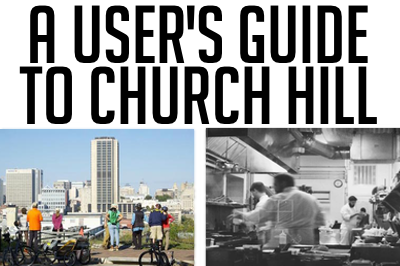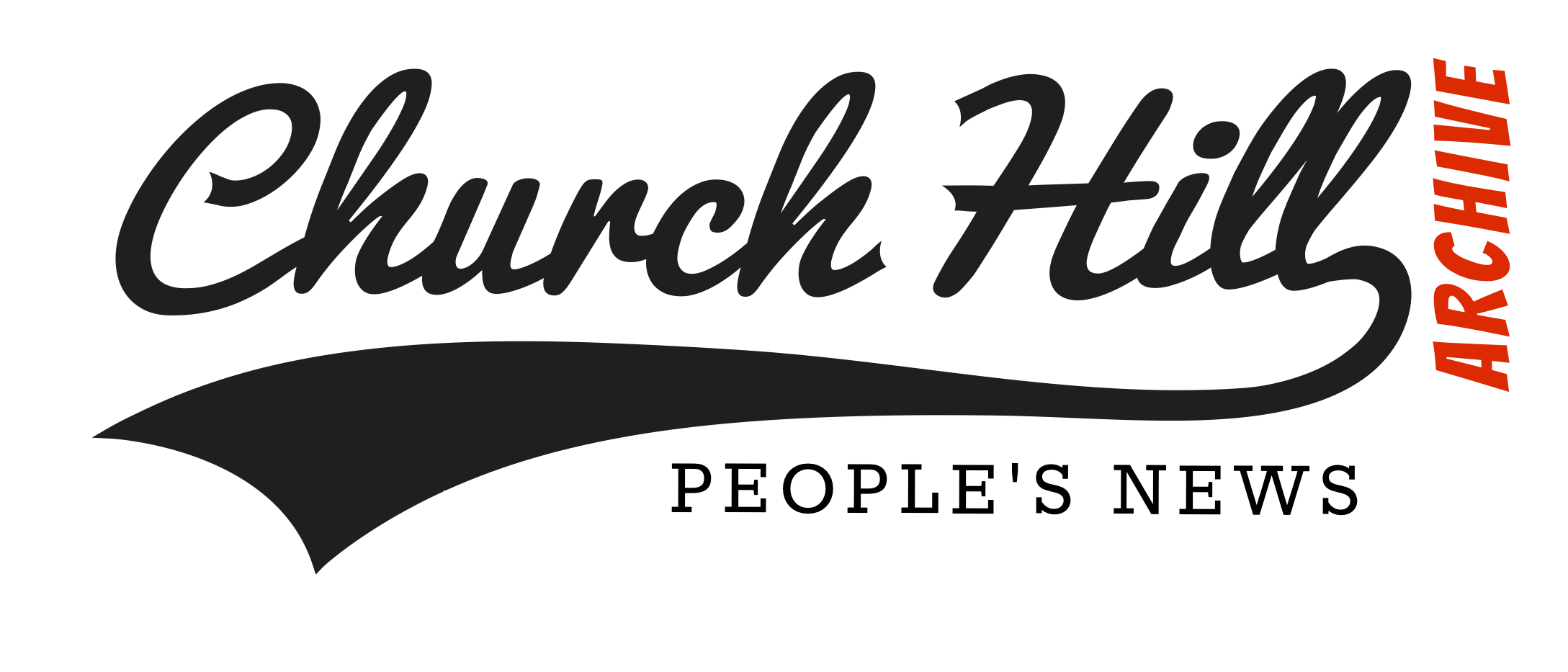RECENT COMMENTS
City Council considers raising real estate tax
Four proposed options for a 2010 Richmond Real Estate Tax Rate were introduced today during the scheduled Richmond City Council Formal Meeting. The proposed options include $1.23, $1.22, $1.21 and $1.19. The current Richmond Real Estate Tax rate is $1.20, which would remain the same if no new rate is adopted. The vote on the adoption of a new rate will be Monday April 12, 2010.
From the press release:
Each year a number of possible Richmond Real Estate Tax Rate options are typically introduced in anticipation of adopting a new Richmond Government Budget (Fiscal Plan) for the upcoming Fiscal Year.
As a real estate tax rate must be set by April 15 annually, and sufficient time must be given between introduction and adoption to allow for review and public comment, a number of rates are introduced at the same time to allow for flexibility in adopting a new rate.
The five options (including the option to remain the same in no action is taken) are in preparation of a forthcoming proposed budget that will be submitted by the Mayor to Council on March 22, 2010. (Note: On February 22, 2010, Richmond City Council (by Ordinance Number 2010-34-40) extended the deadline for the Mayor to submit a proposed budget; from March 6 to March 22 at 3:00 p.m.)
The Richmond Real Estate Tax is the largest single funding source we use to pay for local government services and considerations regarding the rate include a $30 million shortfall in local revenue, which includes expected decreases from state and federal funding sources. Each one cent in real estate tax equates to and estimated $1.9 million in city revenue.
CONTACT For more information, please contact Then Honorable Kathy Graziano, President, Richmond City Council, Southwest 4th District, 804.320.2454 or kathy.graziano@richmondgov.com
BACKGROUND ON RICHMOND REAL ESTATE TAX ASSESSMENTS
As Richmond Citizens, we pool our resources to own and operate our government and decide what public services we want to invest in; the priority (investment levels) for these services; and, how we pay for them. Examples of our services include the management, oversight and delivery of such things as clean/safe water; streets/parks; firefighting/ rescue; trash/sewage removal; laws, police/courts; public transportation; and, our children’s education. Together, we own, operate, use and benefit from these services every day.We as citizens have determined that a fair way to help pay for these services is for real estate owners to annually contribute funds, based on a percentage of the value of the real estate they own in the city. This process includes that each year, the fair market value of real estate in the city is assessed and the value is set Jan. 1 and an annual Richmond Real Estate Tax Rate is set by Richmond City Council by April 15. This rate is the percentage, based on $100 of value, which a real estate owner will contribute to help pay for government services in the city.
Our real estate tax is the largest single funding source we use to pay for our public services and is used statewide to pay for local services. There are approximately 73,000 real estate properties in Richmond and to help ensure fairness, Virginia State Law requires that Richmond perform annual real estate assessments to determine fair market value.
Real estate owners pay their share annually, based on the value of their real estate and the tax rate by June 15. For example, if a person owns $100,000 in real estate and the tax rate is $1.20 per $100, their share is $1,200 for that year.






Real estate taxes go up, meanwhile city services to landowners continue to decline….. You can’t tax yourself into prosperity.
Yep, Henrico is looking better and better.
Maybe I’m just crazy, but I personally (emphasis added) really don’t mind if they go for the 1.23 rate. The difference I’d pay between the 1.19 rate and the 1.23 rate seems low (especially spread out over a year); and, if it means keeping our City services functioning at a reasonable level (or maybe even improving) and ensuring that more City employees aren’t laid off, then it’s an added cost I’m willing to pay. Just my two cents – well, more than that since I’d be paying more at the 1.23 rate.
Wouldn’t it be great if the General Assembly would consider a split-rate real estate tax for Richmond, similar to the proposal in Baltimore, that would place a higher tax burden on the owners of vacant, blighted property to reflect the burden those properties place on their communities?
http://slumlordwatch.wordpress.com/2010/03/04/baltimore-realtor-speaks-in-favor-of-higher-property-tax-for-vacants/
The split tax rate is a great idea. Course that means the City’s Property Maintenance Code Enforcement Division will have to be on its P’s and Q’s.
See CHPN header “city code enforcement audit not surprising.”
In the interest of fairness, why not start charging taxes to all the freeloading parasites — like all the churches that own so much property in Richmond yet contribute nothing to our tax base? Why should I be expected to subsidize someone else’s religion? They have had a free ride for too long.
And we don’t think the City wastes enough money as it is with a bloated bureaucracy? I thought a new mayor system would help us. It has done just the opposite.
Cut the fat and overhead first, then see where the budget stands.
For those that support a tax increase, nothing prevents you from adding a few dollars to your tax bill to pay for those “services”.
I agree with both the split tax rate and taxing churches – also, taxing the city and state owned real estate, at least at some percentage. Don’t even state buildings have to pay the storm water assessment ‘fee’?
Also – am I the only one who found some of the typos offensive in the press release? Graziano is “THEN Honorable Kathy Graziano, President, Richmond City Council” being just one such typo! I mean, we all make typos – but when a press release is going to get wide distribution, I think that someone should proof it!
Further, the press release makes it sound as if we, the citizens, have some say in this. Well, if that’s true, then we should all take our comments from this blog and communicate them to Ms. Graziano!
I agree with magneto – I don’t mind paying a few cents more in tax to ensure my city services are kept intact.
I also find the split tax rate an interesting idea. Although, if the slumlords can’t be bothered to maintain their properties, I do wonder if they would bother to pay their taxes as well.
I’ll come in in that, too, though obviously I have very direct interest in not seeing teachers cut.
@tiny -That’s the beauty of the split rate proposal: if slumlords don’t bother to pay their taxes, their tax debt will accrue more rapidly than under the current system. In theory, this could push the properties into the tax sale process sooner–at which point the City would recoup the tax debt through a tax sale AND auction the property to a (hopefully) more responsible owner.
Some choice comments on the Hills & Heights site:
http://hillsandheights.org/2010/03/08/real-estate-tax-rates-proposed-increase-possible/#comment-12996
Has a “a split-rate real estate tax” been tried anywhere ever?
Here is a link to Washington, D.C.’s:
http://otr.cfo.dc.gov/OTR/cwp/view,a,1330,q,594394.asp
And for Baltimore, the Maryland legislature’s House and Senate Bills can be found here:
http://mlis.state.md.us/2010rs/billfile/hb1096.htm
and
http://mlis.state.md.us/2010rs/billfile/sb0889.htm
This Baltimore Sun post offers some interesting commentary on how the system has played out in D.C. as well as how the Baltimore proposal is shaping up (the comments below the article are well worth reading):
weblogs.baltimoresun.com/business/realestate/blog/2009/12/c…
Publius804 has it right about the split real estate tax idea: it would require General Assembly approval. As some may recall from the 7th District City Council debates at the Robinson, that pesky Dillon Rule will keep City Council from enacting anything that original.
It’s already too late to consider the idea this Session, but perhaps next year.
publius804: I have not yet read all of your links but will be sure to do so shortly.
However, I do want to add that Baltimore is much more progressive than Richmond – they had urban homesteading a long time ago. I posted in another thread somewhere (sometime ago) on this blog about Richard Day’s efforts to bring urban homesteading to Richmond, and how that effort failed (Day is a mortgage banker with Wells Fargo who came here from B’more). Much as I’d like to see some of Maryland’s issues added to Virginia’s and Richmond’s, I’m not sure it’s realistic, I guess is what I’m trying to say. Again, I WILL read your links, and probably have more to say then.
As to the split tax rate and higher taxes on vacant dwellings / lots / slumlords – I suspect that would have to go through the General Assembly before Richmond could enact it (Dillon Rule). Might be worth considering though. Paul Goldman got something done, if we organized maybe we could do so, too.
As I stated above, this would have to go through the General Assembly. However, any push for this would likely have to start with the City–by lobbying City Council now, perhaps we could get this in the City’s next legislative package. Someone more familiar with City-State political mechanics may want to step in here and illuminate.
Also, as an aside, Richard Day is no longer at Wells Fargo.
#5, Do you know what our mayor does for a living? Don’t think we’ll see churches paying their fair share anything soon.
In fact, far from bearing their fair share of the cost of government, pocket pickin’ padres recently wanted to be excused from paying their fair share of the stormwater utility fee even though it would mean a Real Estate Tax increase for all citizens regardless of their faith or ability to pay increased fees in these troubled economic times.
Let’s start taxing the churches. It’s overdue
Great debate here about a higher tax for slumlords — I hope Richmond can enact the same legislation.
The split tax didn’t fare well in DC, however you can’t really compare DC’s housing market/taxes to any other city in the country. After having lived in or near DC for most of my life, I can tell you — it really is a different world.
The tax would work well in Baltimore, and in Richmond, because we’re not at the same stage of development as DC — nor are our housing markets as strong. We lag behind — due in part to the blighted structures that plague our cities. We need that extra layer of “punitive protection” from our cities’ slumlords, and this tax is the best way to do that — hit ’em where it hurts! This will either force them to change their ways or get out of town.
My best to Richmond — you have a fantastic city, with beautiful historic buildings and so much potential — and you even have a slumlord watch blog! I can’t wait to see what happens next, I predict great things!
Split tax rate or landlord licenses…
It’s time the City and Stage government do more to recognize what the citizens are dealing with.
Publius: Okay, I’ve read almost all of your links, and noticed that D.C. apparently ditched their higher tax for vacant houses after only a year or so on the books (or so I understood after reading the B’more Sun post). I think right now I’d be more supportive of rental inspections, although in the past I’ve thought they weren’t necessary due to building codes, Landlord Tenant Act, etc. But maybe that would take care of derelict rentals, at least, and could hopefully take in enough in fees to support itself. The city’s already got the ability to sell tax delinquent vacant lots and derelict bldgs. if they’d just stay on top of it.
Also, the B’more Sun article with lengthy comments was really interesting. I withdraw my support for split tax for vacant houses – think it could lead to problems, unless very carefully written.
However, I’m now more interested in D.C.’s taxing of commercial buildings at much higher (and various) rates….why can’t Richmond push for that? Commercial properties are taxed the same as residential here, right? Why?
Also, I’m interested in how to get the law changed so that state (and local, perhaps) gov’t and churches are taxed in some way. I realize that Mayor Jones isn’t going to be supportive of churches paying taxes, but I still think it’s a good idea. Does anyone here (Publius??!) know how other cities treat the same entities? That includes not only churches, but also gov’t bldgs.
Plus, what about churches that own vacant buildings and vacant lots? Maybe they should be taxed, at least, even if the church structure itself isn’t taxed.
…just throwing out a bunch of thoughts. If any of this coalesces at some point, I’d be game to help organize and lobby council to lobby the General Assembly for change.
I think the DC example is a good situation to learn from, and I think the proposals floating in Maryland right now do a good job of addressing the concerns that DC’s tax rate provoked. Also, as Baltimore Slumlord Watch points out, Richmond and Baltimore are dealing with a vacant building problem of a different nature than DC. To be able to both raise tax revenue and deal more effectively with neighborhood blight would be a real coup for City Hall.
Since the idea is to tax vacant *uninhabitable* homes, it wouldn’t punish the responsible property owner who is caught in a downturn in the rental market, for example. Moreover, it might make some developers take pause before taking on a risky project, which I don’t believe is a bad thing. I think the proposal being pushed in Baltimore gets right the things that DC didn’t. Also this seems more politically palatable than going after churches (although I’d be all for that as well). We’re still in the bible belt, after all, although it is disgusting to see the role that some churches in this community play in contributing to neighborhood blight.
crd, I like how you are thinking, but I’d urge you to give the split rate tax proposal some more thought. Kathy Graziano and some other folks at the City have been made aware of it, and it would be great to get some momentum going on this.
Publius, can you be more precise in how exactly the Bmore proposal gets right the things that D.C. didn’t? I’m curious, thanks.
Also, what sort of thought should I give the split rate proposal? Right now, I’d like to see a higher rate on commercial structures (I’m temporarily giving up on churches), perhaps along the lines of D.C. which has two rates one up to 3 million (or is it five million?) of assessed value, the other at even higher assessed values.
Also, I’d like to see a discount for seniors here, I think there’s something now but it’s based on the poverty level type of income. I’d like to see it at least dropped by 50% for anyone over, say, 70, and not just be income based.
crd, surely you’re not suggesting that an elderly slumlord deserves a tax break.
The guy mentioned in this press release is elderly, and while he deserves a lot of things (like jail), a tax break because of his age certainly isn’t something I’d add to the list:
http://www.mde.state.md.us/PressReleases/143.html
B’more #24, no I wouldn’t want him to have a break, gotta admit you got me there!
The RE tax relief plan is for those permanently and totally disabled or over the age of 65, and whose net worth, excluding residence is less than $200K and income is less than $50 annually. A split tax rate, as desribed in B’more, may have unintended consequences. On the one hand, anything that serves as an incentive to some of the slumlords would be a good thing. But this rate would also penalize developers who are accumulating properties for redevelopment. I do understand that some people think redevelopment is a bad thing, but it does provide safe affordable housing while returning property to the tax rolls. A penalty tax would discourage batching properties for redevelopment, and remove some of the economic incentive for cleanups.
It wouldn’t penalize those developers who purchase property and then promptly rehab the property — at least within a year. This would penalize those who purchase property and let it rot. These “developers” are doing nothing to increase the tax base in our city — nobody’s living in these homes, nor has anyone lived in them for many years.
Agree (of course!) with Baltimore Slumlordwatch. The folks out there that are acquiring properties for development in a responsible way–Elder Homes, Habitat, Better Housing Coalition, etc., are developing these properties efficiently and deliberately.
On the other hand, the Oliver Lawrences and Don Laceys of the world don’t need any more free passes to recklessly accumulate properties that they can’t maintain. I think the intended consequences of a split-rate real estate tax would significantly outweigh any unintended consequences.